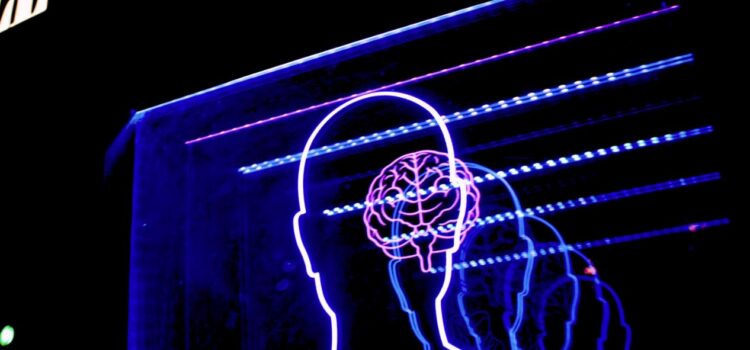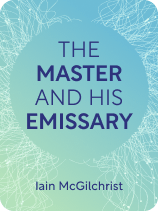

This article is an excerpt from the Shortform book guide to "The Master and His Emissary" by Iain McGilchrist. Shortform has the world's best summaries and analyses of books you should be reading.
Like this article? Sign up for a free trial here.
How should the brain hemispheres work together? What’s the proper connection between the left and right brain?
Popular opinion holds that the left brain does more “important” work than the right brain, so it should dominate. But, Iain McGilchrist takes the opposite view, contending that the left brain should be subservient to the right brain.
Continue reading to learn what McGilchrist believes is the optimal relationship between the two brain hemispheres.
How the Left and Right Brain Should Work Together
In light of the differences between the two hemispheres, it’s natural to wonder how they relate to each other. We’ll examine McGilchrist’s contrarian argument about the proper connection between the left and right brain: The right hemisphere should take primacy over the left because the right hemisphere grounds several of the brain’s most crucial functions.
McGilchrist notes that, in popular culture, the left hemisphere is associated with more important work, such as logical reasoning and problem-solving, leaving the less important right hemisphere subservient to it. But McGilchrist argues that, in an optimally-functioning mind, the right hemisphere is sovereign over the left hemisphere. Although McGilchrist lists a wide array of areas that showcase this right-hemisphere dominance, we’ll focus on three key ones: our value judgments, our capacity for attention, and our ability to grasp meaning.
Area #1: Value Judgments
According to McGilchrist, the right hemisphere is primarily responsible for our value judgments about the world—what we like, what we dislike, and what we find worthwhile. To show as much, McGilchrist cites studies showing that we form these judgments intuitively, on the basis of our emotions, and only rationalize them after the fact. For example, when we judge one career to be more appealing than another, these studies suggest that we do so on the basis of our feelings rather than logical reasoning.
These emotions are processed in the right hemisphere, while the left hemisphere sits on the sidelines. Given the pivotal role these emotions play in our decision-making, it stands to reason that the right hemisphere—which is responsible for emotions and therefore for value judgments—is likewise responsible for our decision-making.
(Shortform note: In a similar vein, one account of moral judgment contends that moral judgments are largely intuitive, and deliberate moral reasoning typically serves only to confirm our intuitive judgments. According to this account, the real forces underlying our moral judgments are sociocultural influences, such as which moral judgments are deemed socially acceptable. However, it doesn’t follow from this account that we should form moral judgments this way, and influential philosophers like Immanuel Kant have argued that true moral judgments are derivable from reason alone.)
Area #2: Attention
In a similar vein, McGilchrist argues that the right hemisphere’s capacity for global attention takes precedence over the left hemisphere’s capacity for selective attention. After all, we first attend to our surroundings globally, before using that information to focus our attention more narrowly on particular stimuli. For instance, we would normally perceive a tree first before we move on to focus on the ants on the branches. McGilchrist suggests that, without the right hemisphere’s ability to attend broadly to our surroundings, the left hemisphere’s ability to selectively attend to specific stimuli would be far less useful.
(Shortform note: Though McGilchrist may be correct that global attention is more important than selective attention, scientists Adam Gazzaley and Larry Rosen highlight the crucial role selective attention plays in reaching our cognitive goals in The Distracted Mind. They point out that selective attention allows us to filter out irrelevant stimuli that could distract us; for example, a tennis player might selectively attend to the tennis ball during a match and block out the shouts from the crowd.)
Area #3: Meaning
Finally, McGilchrist claims that the right hemisphere grounds our comprehension of meaning because the implicit meaning that only it grasps is the foundation of the explicit meaning grasped by the left hemisphere. In other words, McGilchrist suggests that to make something explicit requires some form of implicit understanding: We must comprehend the whole before we analyze and abstract it. For example, in order to explicitly define an object—like defining a triangle as a polygon with three straight sides and three vertices—we must already have an unspoken idea of what constitutes the object; otherwise, our explicit definition would be arbitrary.
(Shortform note: McGilchrist’s distinction between explicit and implicit meaning roughly corresponds to the distinction between semantic and pragmatic meaning. On the one hand, semantic meaning refers to the meaning of the words themselves that are in sentences; so, the semantic (or explicit) meaning of the sentence, “Can you pass me the salt?” is whether someone is literally able to hand the salt to you. By contrast, pragmatic meaning refers more generally to what is conveyed by a sentence—for example, the pragmatic (or implicit) meaning of the sentence, “Can you pass me the salt?” is roughly a request for someone to pass you the salt rather than a literal question about someone’s physical capabilities.)

———End of Preview———
Like what you just read? Read the rest of the world's best book summary and analysis of Iain McGilchrist's "The Master and His Emissary" at Shortform.
Here's what you'll find in our full The Master and His Emissary summary:
- How pop psychology has given us the wrong impressions of the brain's hemispheres
- Why the right hemisphere is actually more important than the left
- What would happen if left-hemisphere thinking took over the world






